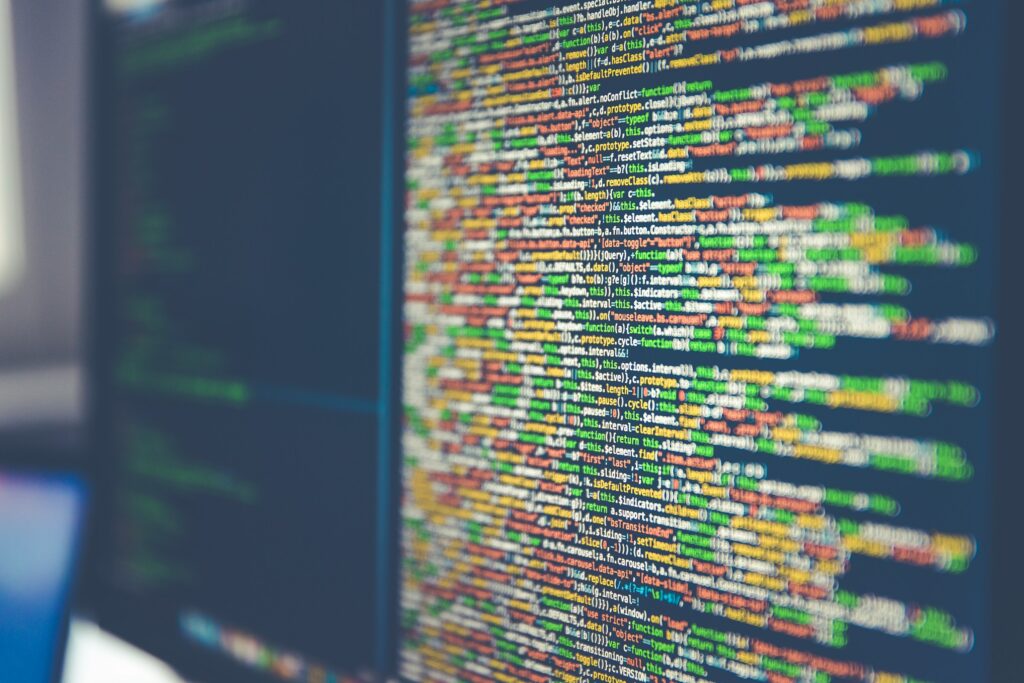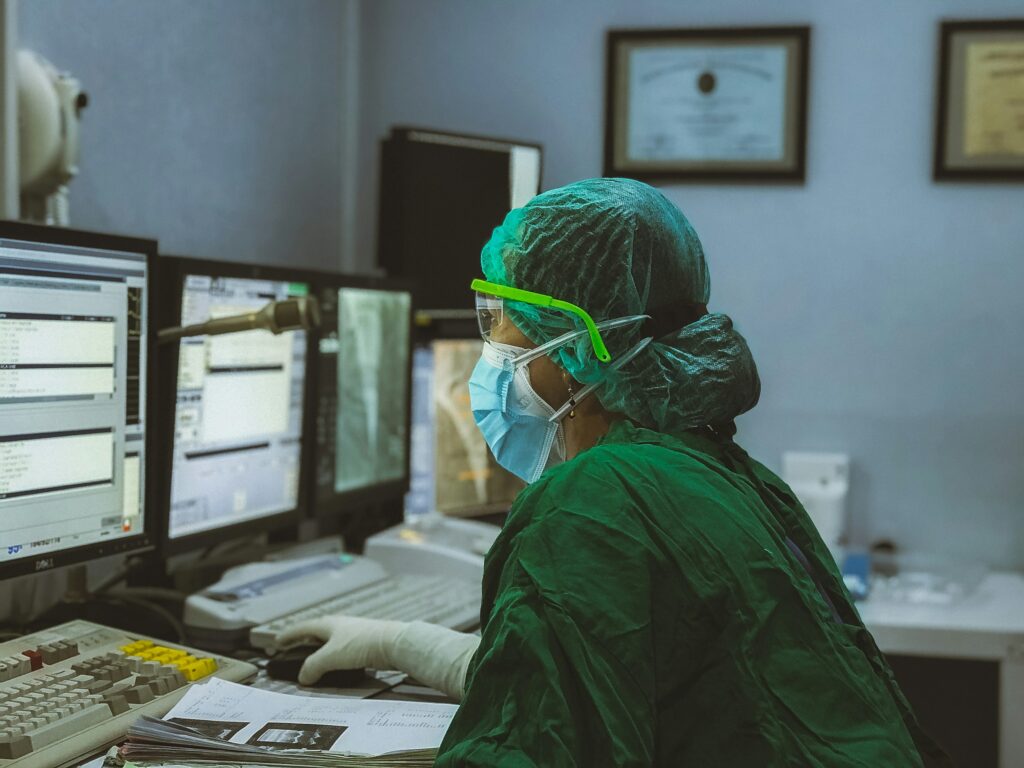A serious Maintenance data Data leak in the USA, the Cybersecurity in the healthcare sector. A misconfigured server compromised the sensitive health information of millions of patients. This incident underlines the importance of data protection in the digital era.
In Germany, a similar case is causing a stir: An IT security leak at a healthcare service provider affects around 1,200 doctors in central Germany. The incident occurred at D-Trust, a provider of digital identities, and shows that there is also a risk of data leaks in this country.
The consequences of such incidents are far-reaching. In the USA, for example, 1.4 million patient data records are used in research over a period of 20 years. A data leak could jeopardize this important work. In addition, several terabytes of data are generated from electronic patient files every day, which illustrates the scale of the problem.
Key findings
- Millions of patients affected by data leak in the USA
- Misconfigured server identified as the cause
- Sensitive health data at risk
- Similar incident in Germany involving 1,200 doctors
- Daily data volumes in the terabyte range underline the risk
What is a data leak?
A data leak refers to unintentional access to confidential information by unauthorized persons. This poses a serious threat to the IT Security and the Data management of companies. The Confidentiality sensitive data is compromised, which can have far-reaching consequences.
Definition and explanation
Data leaks are often caused by technical errors, human error or targeted attacks. They put people's privacy at risk and can have significant financial and legal consequences for companies. Leaks of health data, which are particularly worthy of protection under the GDPR, are especially critical.
Examples of data leaks
A current example shows the scope of data leaks:
- Tens of thousands of people were affected by a data breach at a Munich-based trading app
- Claims for damages in Germany are usually in the three-digit range
- Fines for companies can reach five-figure sums
| Nature of the incident | Affected persons | Possible consequences |
|---|---|---|
| Trading app data leak | Several tens of thousands | Compensation, fines |
| Typical data protection breach | Varies | Three-digit compensation sums |
| Serious GDPR violation | Often many thousands | Five-figure fines or higher |
These cases underline the importance of robust IT security measures and effective data management to protect the Confidentiality.
The incident in the USA
A serious data protection incident recently shook the care sector in the USA. Millions of sensitive patient data were exposed on the internet due to a server error. This case underlines the importance of Data security and Compliance in the healthcare sector.
What happened?
A large care provider in the USA experienced a server misconfiguration. As a result, confidential patient information was unintentionally made publicly accessible. The exposed data included names, dates of birth, addresses and in some cases even medical findings.
How was the leak discovered?
Security experts discovered the unprotected data during routine checks. They immediately informed the care provider concerned and the relevant authorities. The incident shows the importance of regular security audits to prevent Data misuse are.
| Aspect | Consequences of the data leak |
|---|---|
| Legal consequences | High fines, possible criminal proceedings |
| Data concerned | Names, dates of birth, addresses, medical findings |
| Damage to image | Loss of trust among patients and partners |
| Necessary measures | Improvement of the IT SecurityTraining of employees |
This incident makes it clear that the processing of health data requires special care. Care facilities must continuously review and adapt their data security measures in order to Compliance and to protect the trust of their patients.
Groups of people affected
The Maintenance data Data leak has far-reaching consequences for various groups of people in the healthcare sector. The Confidentiality sensitive information was severely impaired by this incident.
The injured parties
The main victims include patients and medical staff. Over 1200 doctors are affected in Saxony, Saxony-Anhalt and Thuringia. The state medical associations are currently informing the doctors affected.
Disclosed data
The type of data disclosed is particularly sensitive. According to the GDPR, patient data in the care sector is considered particularly sensitive. The following sensitive information could be affected:
- Personal identification data
- Medical diagnoses
- Course of treatment
- Medication plans
The Privacy was massively violated here. Unauthorized disclosure can have serious consequences. Affected patients could become victims of identity theft. For doctors, there is a risk of damage to their image and legal consequences.
| Federal state | Doctors concerned |
|---|---|
| Saxony | Over 500 |
| Saxony-Anhalt | 300 |
| Thuringia | Almost 400 |
Maintaining confidentiality in care is crucial. Facilities urgently need to review and improve their data protection measures to prevent future leaks.
The technical background
The IT Security The healthcare sector is facing major challenges. The latest data leak shows the weaknesses in the Cybersecurity of many care facilities. The handling of patient data, which is considered particularly worthy of protection according to Art. 9 GDPR, is particularly critical.

Misconfiguration of the server
The cause of the data leak was a misconfiguration of the server. Data management-systems were not set up properly, resulting in the unintentional disclosure of sensitive information. This highlights the need for robust IT security measures in care facilities.
Failure of the safety protocols
Existing security protocols could not prevent the leak. One reason for this could be that many institutions do not meet the requirements of Art. 30 GDPR. This obliges the creation of a record of all processing activities (VVT).
| Safety aspect | Legal requirement | Consequences in case of violation |
|---|---|---|
| Data Protection Officer | Required from 20 employees | Legal consequences, warnings |
| Confidentiality | § Section 203 of the Criminal Code | Prison sentences possible |
| Data processing | Only collect necessary data | Damage to image, loss of trust |
In order to avoid future data leaks, care facilities must Cybersecurity and an effective Data management implement. This is the only way to guarantee patients' trust in the IT security of the healthcare system in the long term.
Possible consequences for those affected
A data leak in the care sector can have serious consequences. The confidentiality of patient data is protected by laws such as the GDPR. Nevertheless, breaches of the Privacy occur.
Identity theft and misuse
Disclosed patient data can be misused for criminal purposes. Identity theft is a real danger. Criminals use personal information to impersonate individuals. They can take out loans or commit insurance fraud. The Data misuse can cause years of problems for victims.
Psychological effects
A data leak also has an emotional impact on those affected. Many feel stress and anxiety. They worry about their privacy and feel vulnerable. Trust in care facilities can be permanently damaged. Some patients may be reluctant to disclose important information. This can affect the quality of care.
Care facilities must meet the Privacy seriously. They are obliged to collect only necessary data. In addition, a strict duty of confidentiality applies. Violations can result in severe penalties. Regular training and modern security systems help to prevent data leaks.
Reactions of the companies concerned
After the data leak became known, the companies affected reacted with different measures. Those responsible are facing the challenge, Compliance-guidelines and improve IT security at the same time.
Statements and responsibility
Many companies have issued public statements acknowledging the situation and taking responsibility. The Chaos Computer Club (CCC) is demanding an official apology from D-Trust and expects a penalty from the Federal Data Protection Commissioner.
Damage limitation measures
The companies concerned have taken various steps to limit the damage and restore confidence:
- Improvement of data management
- Tightening of IT security measures
- Data protection training for employees
- Establishment of hotlines for affected patients

The GDPR poses particular challenges for care facilities. According to Art. 9 GDPR, patient data is particularly worthy of protection. Violations can have significant legal consequences. Companies must now review and adapt their data protection practices.
| Measure | Goal |
|---|---|
| Appointment of data protection officer | Compliance with legal requirements |
| Creation of a processing directory | Transparency of data processing |
| Consent management | Safeguarding patients' rights |
| Employee training | Raising awareness of data protection |
The reactions of companies show that data protection must be a top priority in the healthcare sector. This is the only way to restore trust and prevent future incidents.
The role of data protection laws
Data protection plays a crucial role in care. Recent incidents underline the importance of robust laws and their implementation. There are different approaches to protecting sensitive health data in Germany and the USA.
Overview of applicable laws in the USA
In the USA, the Health Insurance Portability and Accountability Act (HIPAA) regulates the handling of patient data. It lays down strict compliance guidelines for healthcare providers. Violations can lead to severe penalties. Despite this, data leaks continue to occur, highlighting the need for improved cyber security.
Comparison with German data protection guidelines
The General Data Protection Regulation (GDPR) in Germany goes even further. Patient data is considered particularly worthy of protection. Only necessary data may be collected. Violations can result in high fines.
- A data protection officer is mandatory for 20 or more employees
- Patient consent required for data transfer
- List of processing activities required
- Breaches of confidentiality can be prosecuted under criminal law
External data protection officers and special software help with GDPR implementation. This enables care facilities to ensure compliance without affecting their day-to-day business.
Prevention of future incidents
To prevent data leaks like the recent one in the US, care facilities need to strengthen their IT security. Cybersecurity plays a central role in protecting sensitive patient data.
Technological solutions to prevent data leaks
Modern technologies offer effective protective measures for data management:
- Encryption of sensitive data
- Two-factor authentication for access
- Regular security audits of the IT systems
- Automatic detection of unusual access patterns
Sensitization of employees
In addition to technical solutions, staff training is crucial. Employees must understand the importance of protecting patient data. Important points are:
| Measure | Goal |
|---|---|
| Regular training courses | Up-to-date knowledge on data protection guidelines |
| Practical exercises | Secure handling of sensitive data |
| Clear access rules | Minimization of unauthorized access |
| Obligation to report incidents | Fast response to security problems |
By combining technical and organizational measures, care facilities can significantly improve their cyber security and prevent future data leaks.
Tips for those affected
Quick action is required in the event of a data leak. Protecting personal data and maintaining confidentiality is paramount. Here you will find important steps to take Data misuse and to protect your privacy.
Measures in the event of data misuse
If you are affected by a data leak, you should take action immediately:
- Inform your bank and block your credit cards
- Change all passwords for online accounts
- Check your bank statements for suspicious activity
- Report the incident to the competent data protection authority
Steps to ensure privacy
To protect your personal data in the long term, we recommend the following measures:
| Measure | Description |
|---|---|
| Two-factor authentication | Activate this function for all important online accounts |
| Data encryption | Use encryption software for sensitive files |
| Regular updates | Always keep operating systems and software up to date |
| Caution with public WLAN | Avoid transferring sensitive data in insecure networks |
Remember: data protection is an ongoing process. Stay vigilant and keep up to date with the latest security measures. This way you can protect your personal data from misuse in the best possible way.
Public perception and media coverage
The Maintenance data Data leak has attracted a great deal of attention in the press. The media are reporting intensively on cyber security in the healthcare sector and the importance of data protection for sensitive patient information.
Press coverage of the incident
Many newspapers and online portals have taken up the issue and highlighted the significance of the data leak. In particular, the fact that patient data is considered particularly worthy of protection under the GDPR has been emphasized. In interviews, experts point out the possible legal consequences, which can range from expensive warnings to prison sentences.
Effects on public opinion
The reporting has shaken confidence in healthcare facilities. Many citizens are concerned about the protection of their personal data. A similar case in Portugal, in which even a janitor had access to patient data, reinforces these concerns. The public is now calling for stricter controls and better training for healthcare workers.
In the media, experts emphasize the need for regular updates to IT systems and the importance of data protection officers in care facilities. The discussion about cyber security and data protection in the healthcare sector has taken on a new urgency as a result of this incident.
Conclusion and outlook
The data leak in the USA shows the immense importance of data protection in the digital world. Patient data is highly sensitive, particularly in the care sector, and requires special protection. Strict regulations apply in Germany: According to the GDPR, health data is particularly worthy of protection.
Care facilities must handle data with care. Only necessary information may be recorded. Access by relatives requires the patient's consent. A data protection officer is mandatory for companies with 20 or more employees. This helps to implement data protection correctly.
Violations have serious consequences. In addition to high fines, there is also the threat of damage to the company's image. The example from Portugal, where even a janitor had access to patient data, shows the risks. One thing is clear for the future: data protection in the care sector must be a top priority. This is the only way to maintain patient trust and avoid legal problems.
